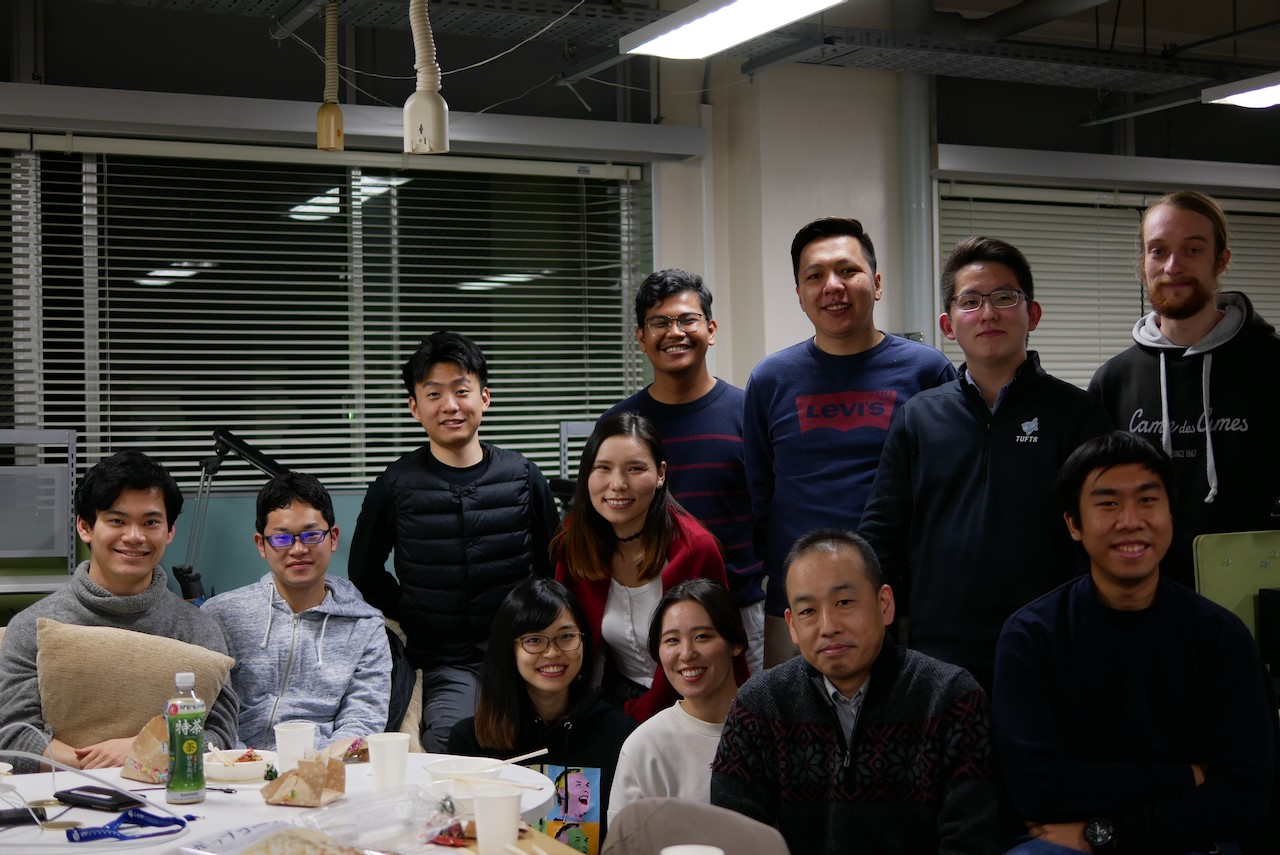Greetings, everyone! Radi here!
I hope everyone is healthy and safe!
It has been around five months since I joined Tokyo Tech and Abe Research Group. Therefore, in today’s post, I would like to share some thoughts about Tokyo Tech and Abe Research Group. Whether it is a positive or negative point, I will leave the judgment to readers.
Disclaimer: Everything I write is based on personal experience and interpretation during my study at TSE Department and Abe Research Group.
- Admission period: The Website, Information, and Contacting Prospective Academic Supervisor
If you have reached this point, I am sure you are not strange with Tokyo Tech’s website. The Tokyo Tech website helped me a lot during the admission process. The website is international student-friendly. Not only is the website available in English, but some of the supporting downloadable files (e.g., pamphlets, admission procedures, curriculum, etc.) are also available in English. It is helpful for international students since other universities only provide English websites for several pages or information.
Another notable thing is how the information is neatly provided on the university website and Abe Research Group. Abe Research Group’s website helped prepare the basic idea of my research plan. This website explains the lab’s research areas/focus and provides past research thesis and dissertations. It gives the general picture of the lab focus and what topic will match the lab. In the case of the admission procedure, I mostly followed the instruction provided on the university website as the information was complete enough and easy to understand.
Before submitting your admission document and research plan, you need to find an academic supervisor. Tokyo Tech also provides an online researcher finder website (https://search.star.titech.ac.jp/search.act) to help you find a prospective academic supervisor (I was lucky my senior recommended me to check Abe Research Group!). I am glad Abe-sensei responded positively and objectively to my proposal. We went to several discussions about my research plan, admission documents, and scholarship. I believe honest and clear responses are what prospective students need during the admission period, especially regarding relatability of the topic with the lab, availability to join the lab, and scholarships.
Even so, I recommend taking your time and doing several times of visiting and reading until you get familiar with the website and information!
- Enrolment period: Classes, Research, and Lab Activities
Now, we get into some serious stuff.
First, about classes, they were given online considering the pandemic situation. Exceptionally one class was held offline (UNDER COVID PREVENTION MANNER AND PROCEDURES) in Suzukakedai Campus. It was a good experience, especially after being exposed to online classes for quite a while.
There are a lot of different subjects available in Tokyo Tech, for example, technical, social, environmental, history, economy, career development, etc. It is very different from what I learned during my undergraduate study, which specifically studied technical engineering aspects. I find it very interesting, especially with a lot of new knowledge from the classes.
In my major (Global Engineering for Development, Environment, and Society/ GEDES), all courses (major and research-related) are taught in English which is preferable for international student. As for the career development and liberal art courses, there are fewer options for English-taught courses compared to Japanese-taught. Another thing that I am pleased with: several subjects also taught by experts from different fields of expertise (career development class). For those who desire to improve their Japanese language skill, there are a lot of Japanese subjects you could take (e.g., presentations, kanji, basic lessons, etc.) Lastly, there are fewer classes with final examinations as its evaluation. At least, it is relatable for subjects I took in these two quarters. Performance in class evaluated by assignments, group projects, class reviews, and final project presentations. I find it decent since it’s focused on your understanding throughout the lesson rather than a single examination.
Second, about research. Just like class subjects, there is varied research theme in Tokyo Tech. It expands from technical and experimental-based to qualitative research. Some time ago, I saw research about a well-known sculptor and his art presented during undergraduate students’ final presentation (though I could not understand the content completely because it was in Japanese).
Joining Abe Research Group, I am currently progressing with my research on solid waste management under Abe-sensei’s guidance. From Abe-sensei, I learn to see an issue from a broader point of view and different perspectives. Not only with Abe-sensei, but I also got the opportunity to learn and share knowledge with other lab members for my research.
Third and lastly, lab activities. I joined Abe Research Group during the COVID-pandemic, so there were fewer direct lab activities until now. Fortunately, we could still hold a weekly seminar for each lab member to present their research progress. During the seminar, not only do we discuss research, but sometimes also discuss other things such as our holiday, recent hobby, and other things. I like the feeling that we can discuss serious issues and ordinary stuff between lab members.

(We only take off the mask for taking photo)
- About social life and human relationship
I think this point is important because we are not going only to study and do research 24/7. Good social interaction and proper rest time will help, especially with the mental condition. But for this matter, I guess language will become a barrier for the international student (especially for those who are not familiar with Japanese yet). Fortunately, lab members make lab conditions very comfortable for international students, for example, communicating using English (even though sometimes I insist to use Japanese so I can practice), picking halal food (since I am a Muslim), and other stuff. Lab members were also very kind to pick me up on my arrival in Japan and showed me around.